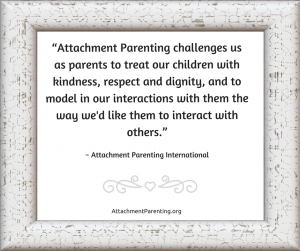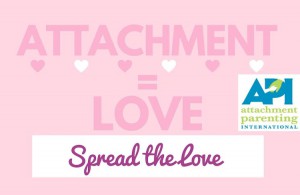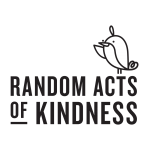Kindness is a behavior marked by the quality of being generous, friendly, helpful, and considerate.
Editor’s Note: Today, February 17, is Random Acts of Kindness Day, an observance created by the Random Acts of Kindness (RAK) Foundation to spread kindness by encouraging individuals, groups, and organizations to engage in acts of kindness. In line with Attachment Parenting International, RAK foundation is striving to make strides towards building a kinder, more compassionate world.
As of late, I’ve been reflecting considerably on the notion of kindness. Perhaps it’s because, much like a mature tree, I’ve deepened my roots into the ground and spread my branches further out and up higher — I’ve grown more spiritual. Or, perhaps, it’s because I now bear fruits — I’ve become the mother of 2 children. Or, perhaps, it’s the fusion of both.
As I’ve become more rooted in recent years, I’ve evolved to become more kind to myself and others. In my role as a mother, I yearn for my kids to live in a kind world where gentleness and compassion is prevalent, not the exception. I also yearn for them to be kind to themselves, as well as others and the world — today, and always.
Often times, I’ve asked myself: What is the essence of kindness? What does it mean to be a kind person? Why are some people more kind than others? Why do some people find it challenging to act in kind ways? And, what can I do to promote more kindness on a personal level, in my family and the world?
The more I considered these questions, the more I realized that kindness has an essential element. Without it, kindness cannot stand. As I observe kind people all around me and as I watch acts of kindness carried out — small and big — I find a common thread: empathy.
Without empathy — the ability to feel another’s pain, the will to alleviate one’s suffering, or have sympathy — there is no space for kindness.
Parenting with Kindness
 In the same way that empathy is a precursor for kindness to transpire, it is also a precursor for gentle, mindful parenting approaches such as Attachment Parenting.
In the same way that empathy is a precursor for kindness to transpire, it is also a precursor for gentle, mindful parenting approaches such as Attachment Parenting.
For a parent to respond to their child with sensitivity and attentiveness — even when, at times, it presents many challenges — there needs to be a recognition on the parent’s part that the child needs to feel safe and secure, be nurtured, listened to, and have close physical contact. This is what the child needs — not merely wants at a particular stage of development, and not as an attempt to manipulate.
For instance, a 6-month-old baby may be breastfeeding more frequently at night due to a growth spurt or his need for soothing due to teething discomfort. When the parent is able to view a situation from their child’s perspective, attending to their needs in a gentle, kind way comes naturally.
Kindness Can Change the World
Through positive discipline, children learn to resolve conflicts devoid of violence. Children learn that inflicting pain on others, or acting in unkind ways towards others, is not appropriate. When we empathize with our children and kindly respond to them, they learn to respond to others in the same way.
When we teach kindness by modeling kindness thorough our parenting practices, we spread kindness. Our children’s behavior affects others — in a positive or negative way.
Imagine a world where every child is raised in a home with the frame of kindness. Can you envision the beautiful, serene picture I do?
Inspired to read more about kindness?



